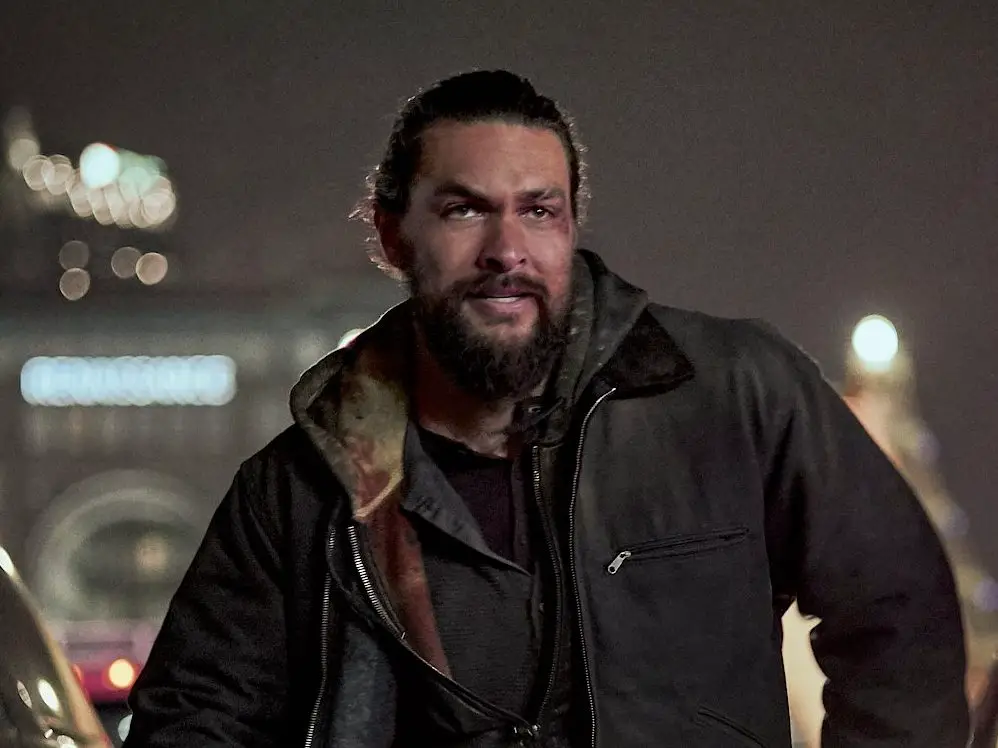Warning: Spoilers for “Sweet Girl” ahead.
Since its release on Netflix, the 2021 action-thriller “Sweet Girl” has been met with mixed reviews. The reactions to the film stretched between people going nuts over the movie and others finding it genuinely upsetting. However, audiences wasted no time commenting on the excellent portrayal of Ray Cooper by Jason Momoa. Most of the positive appraisals surrounding “Sweet Girl” served as compliments to Momoa’s skill rather than raves about the production.
Some were confused that a movie called “Sweet Girl” was not a rom-com, while others branded the film “a big, clunky throwback to 90’s cinema.” The words “derivative” and “underwhelming” can almost seem flattering when compared to the content of the harsher reviews. The negative comments not only call out “Sweet Girl” on its drawbacks but also highlight its failure to meet a certain standard of filmmaking.
Shortcomings of “Sweet Girl”
Although the script attempts to evoke interest in corrupt politics and health policies, the plot is a stain on the art of storytelling. It set the characters up for regression and the viewers for disappointment. After depicting the father-daughter duo on their quest for revenge for about 90% of the movie, an unnecessary climax arrives and leaves viewers questioning their taste in film. “Sweet Girl” starts off showing promise, but a cliffhanger is only so good if the story doesn’t fall down a rabbit hole.
One needs a logical end to start a story from the middle. The revelation that Ray Cooper had originally died earlier in the storyline doesn’t come at the best time. Ray and his daughter Rachel go against hired hitmen and global corporations just for audiences to learn that Rachel had actually done all the killing herself. It is made known that after losing both her parents, Rachel developed dissociative identity disorder as a symptom of her loss-induced PTSD, so she believed her father was carrying out her actions in her place. This disclosure, though, becomes apparent with only 20 minutes left in the movie. As one would expect, piecing together the pointless puzzle is crammed into a subpar conclusion.
In turn, the plot is a sad excuse for a plot. It has, quite frankly, only the beginnings of a story, followed by some epic fight scenes with blood and all that good stuff. Afterward, the writers must have remembered that the story needed a big twist to make it all worthwhile but all they succeeded in doing was flattening the characters’ development. They took a canvas, painted a collage of vivid pathways, then soaked it in bleach to create a faded effect.
To the chagrin of many, the result was nothing but a blob. The truth remains that if you’re going to trick your audience into staying till the end, do it in a clever way. Make sure the ladder you are climbing leads to somewhere useful. Don’t rely on one actor’s charm to make a production a slight success. Audiences want to be entertained, not dissatisfied.
Ultimately, the third-act plot twist undermines the positive themes of “Sweet Girl.”
The solid beginning, Momoa’s great on-screen charisma and the movie’s promising use of in medias res were not enough to offset the damage that inconsistency can inflict on any given narrative.
Momoa’s Mastery
Jason Momoa is a household name when it comes to the action-thriller genre. The actor and producer has taken the screen by many names. Be it Khal Drogo, Aquaman or Conan every character he embodies becomes a universally acknowledged phenomenon. This is a performer who has played a one-man army, a descendant of water gods and an unkillable beast of something other than nature.
“Sweet Girl” took only a small portion of Momoa’s talent and that became its saving grace. Audiences familiar with the actor’s work can confirm that his personification of Ray Cooper was, in its own way, proof of his wide-reaching elasticity. It is unnerving to witness the same face that has bent the seas to his will seek an unseen sanctuary just to shed tears of mourning.
Momoa’s ability to adapt to a range of roles is exemplified outside and within “Sweet Girl.” Yes, he can perform the Haka while wielding a trident but he can also switch back and forth between a warmhearted father and a merciless killer with ease.
In an interview with Pulse Nigeria, Momoa discussed his role in “Sweet Girl.” As audiences mostly perceive him as a hard guy, viewers were shocked to learn he does not see himself that way. Momoa’s lack of experience with emotional roles, however, did not hinder the actor’s apt execution. In a scene where Ray Cooper weeps like the widower he is, his grief appears as palpable as it does heart-wrenching. Momoa’s performance remains a redeeming feature of “Sweet Girl” despite its tragic flaw of upending nearly everything that went into the story.
The Bitter Truth
“Sweet Girl” is a sponge that absorbs the ocean of talent that is Jason Momoa. In cinema and the film industry at large, an actor’s skill is often credited to the production. “Sweet Girl” is one of the many instances — which are barely ever spoken about — where the actor is responsible for the majority of a project’s success.
Momoa’s screen presence as Ray Cooper, a man left with nothing in his heart but love for his daughter and vengeful rage for the people who cost his wife her life, is a sight to behold and an experience worth remembering. One has to ask themselves if this was a film they would watch if Momoa did not star in it. His prowess and delivery engage the audience in a faultless and immersive way. No wonder “Sweet Girl” soaks it all in till the very end.

















